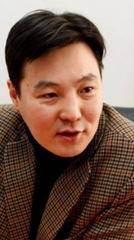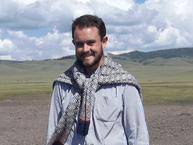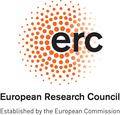| Principal Investigator | |
|
Rebecca has focused on ideas about personhood and exchange through practices of harnessing fortune in Mongolia. Here an analytical space (obfuscated by a naturalist ontology) was opened up to reveal different ways of understanding wealth accumulation and growth. She has further examined how this concept of fortune informs economic exchange and politics, initially through bank loans and later, through the concept of 'temporary possession', in ideas about land and ownership. She is currently exploring pre-figurative forms of subjectivity (acting as if one lives in the society one wants to be in) through different zones of experiment such as the use of facebook, lifestyle centres, and the use of bank and credit schemes in Mongolia.
Rebecca gave the Malinowski Memorial Lecture based on her new research in this area. An Economy of Temporary Possession is available here as a podcast.
You can also listen to a recent lecture Rebecca gave in Oxford: Claiming resources, honouring debts: miners, herders and the land masters of Mongolia. Rebecca has co-edited with Professor Caroline Humphrey the new Inner Asia Journal
issue on economy and politics in Inner Asia. Volume 17, Issue 1, 2015. Rebecca Empson will collaborate in research with Dr. Narantuya Chuluunbat, professor at the Economics Department of the National University of Mongolia (NUM) who teaches Microeconomics, Economic Development, Public Sector Economics, New Institutional Economics. |
 |
| Core Team | ||
|
Name and title |
Academic Background / Education | |
|
Dr Lauren Bonilla Research Associate |
BA Anthropology and Geography, Macalester
College (2005)
MA Geography, Clark University (2012) PhD Geography, Clark University |
 |
Research Summary
Lauren Bonilla is a geographer broadly interested in how environmental and social change intersects with processes of economic and political development. She studies questions around mining and development, with a focus on how the introduction of new mining-related projects, policies, and infrastructures combine to reshape everyday life for Mongolians.
She is currently writing a book about the rapid shifts occurring in Mongolia's extractive economy that is provisionally entitled In Search of the Boom in Resource-Rich Mongolia: Development, Debt, Dust, and Disorder. The book seeks to contribute to anthropological and geographic knowledge about boom-bust dynamics and the socio-material dimensions of resource extraction in the midst of the slowdown of China, the end of the recent global commodity super-cycle, and the rise of global financial markets.
Lauren's research takes an intimate look at what happens in the lives of people and places in Mongolia when the politics of large-scale mining shift from addressing national development to servicing foreign debts and attempting to alleviate a steep economic downturn. To examine this shift, Lauren is developing a theory of distribution that emphasizes the temporal, material, and affective dimensions of sharing wealth and the responsibility of indebtedness. She sees distributional politics as central to experiences of crisis and austerity, especially when non-renewable natures become the basis for the fulfillment of new forms of fiscal, social, and political obligation operating at national and transnational scales.
Lauren Bonilla is also co-authoring research on electoral politics and gifting with Tuya Shagdar of the Department of Anthropology and Archaeology at National University of Mongolia, and studying development with Munkh-Erdene Gantulga of the Department of Humanities, Mongolian University of Science and Technology.
| Name and title | Academic Background / Education | |
|
Dr Rebekah Plueckhahn Research Associate |
PhD - Australian National University (2014) BA/BMus (Anthropology, History and Ethnomusicology) (Hons) - The University of Melbourne (2004) Honours and Awards: Awarded the 2014 Article Prize from the Australian Anthropological Society (AAS) for her article: |
 |
Research Summary
Rebekah Plueckhahn joins UCL Anthropology as a team member of the ERC project 'Emerging Subjects of the New Economy: Tracing Economic Growth in Mongolia.' On this project, she is conducting research into different urban spaces in Ulaanbaatar, exploring the relationships between infrastructure, economic oscillations, perceptions of the market, and people's everyday decision making as they try to access and keep property and housing. Her research interests range from temporality, speculation, property and ownership, infrastructure, strategy, the making of urban space, value, and morality. She comes to this project with a research background in sociality, performance, aesthetics, and value which she applies in her research on the ways people create and use urban space and attempt to resolve conflict.
Rebekah received her PhD from the Australian National University in 2014 for her research into changing musical-social practices, social aesthetics, performance, and future imaginaries among a group of Altai Urianghai people both in and from western Mongolia. Prior to her PhD, Rebekah worked for one year in Ulaanbaatar as an Australian Youth Ambassador for Development.
Her book "Shaping Urban Futures in Ulaanbaatar" (working title) is forthcoming with UCL Press.
Rebekah Plueckhahn is collaborating in research with Bayartsetseg Terbish.
| Name and title | Academic Background / Education | |
|
Dr Bumochir Dulam Research Associate |
PhD Anthropology, University of Cambridge (2006) MPhil Anthropology, University of Cambridge (2001) PhD Philology, Mongolian Academy of Sciences (2000) MA Philology, National University of Mongolia (1998) |
 |
Research Summary
Bumochir has conducted research on a wide range of topics including shamanic practices and the historical construction of 'shamanism' in Mongolia and Inner Mongolia. For his PhD he focused on the performance of respect in the social production of ethnic identity, politics and the state among High Mongol pastoralists living in a multi-ethnic region in Qinghai, NW China. More recently he has explored the way environmental conservation and global politics have reshaped mobile pastoralism in Mongolia and China.
For the 'Emerging Subjects' project Bumochir is examining how the concept of the 'environment' comes to be used as a neoliberal asset and political instrument that is implemented in various local, national and global discourses, such as civil society movements, re-arranging mobile pastoralism, revitalising shamanic practices, stalling the development of the mining economy, recreating national identity, and building a nation state. Focusing on various discourses of the 'environment' he aims to interpret several politico-economic puzzles and neoliberal dilemmas that Mongolia's Nation State is currently facing.
Prior to UCL, Bumochir worked for the Department of Anthropology and Archaeology, National University of Mongolia, as Professor of Anthropology and Department Chair, lecturing and producing anthropology textbooks. He was also involved in leading projects funded by the Wenner Gren Foundation, Open Society Foundation, Asian Development Bank, American Asia Foundation, World Bank and Swiss Agency for Development and Corporation, allowing him to carry out fieldwork in Mongolia, North China and Kyrgyzstan.
Bumochir Dulam will collaborate in research with Byambabaatar Ichinkhorloo.
| Name and title | Academic Background / Education | |
|
Hedwig Waters PhD Student hedwig.waters.14@ucl.ac.uk |
MA in Social and Cultural Anthropology Free University Berlin, 2014
BA (Hons) in Anthropology George Washington University,
2009 Honours and Awards:
Fulbright Research Scholarship to Mongolia, 2011/12 |
 |
Research Summary
My provisional research topic is within the scope of Rebecca Empson's new ERC-funded research project "Emerging Subjects of the New Economy" analysing how Mongolians locally experience the exigencies of the mineral-dependent economy. My focus within this sphere discusses the ramifications of Mongolian conceptualizations of collectivism vs. individualism and/or hierarchy vs. egalitarianism on resource allocation. For example, how do different forms and levels of power/hierarchy, like gender and age, affect who has how much access to resources? This question might be examined through a study within the free-trade zone of Zamiin-Üüd/Erlian on the Mongolian/Chinese border, by examining the various ways Mongolian actors (traders, sex workers, bureaucrats, etc.) might change, reinforce, or reinvent their economic behaviour and group identifications based on the expectations of the free-trade zone.
· Research interests: Free-trade Zones
· Gender & Sexuality Studies
· Collectivism/Individualism; Hierarchy/Egalitarianism in Economics
· Nationalism(s) and Ethnic Conflicts
· Performance through Consumption
· Body politics
· Regional Focus: Inner/East Asia, i.e. Mongolia, China, South Korea
Hedwig Waters will collaborate in research with Tsetsegjargal Tseden.
|
Name and title |
Academic Background / Education | |
|
Dr Uranchimeg B. Ujeed Mongolian Administrative Researcher and Mongolian Language Support Teacher |
BA Mongolian Language and Literature. Inner Mongolia University MA Folklore, Inner Mongolia University PhD Religious Studies, SOAS, London (2009). |
 |
Research Summary
Uranchimeg is working on the project as a general administrative researcher and language support teacher. Her research focuses on Mongolian religion, including Buddhism, Shamanism and folk religions, as well as the spiritual culture of Mongolians.
She holds a part-time research associate post at the Mongolia and Inner Asia Studies Unit (MIASU), Cambridge, teaching Mongolian and conducting research on Mongolian religions, and is a guest Professor and Research Director at the Hurelbaatar Institute for Collaborative Mongolian Studies, based at the Inner Mongolia Normal University, and at the Centre for Horchin Mongolian Studies, Inner Mongolia University for Nationalities.
Also working with the team...
|
Name and title Academic Background / Education |
|
|
Liz Fox PhD Student elizabeth.fox.10@ucl.ac.uk |
 |
Research Summary
Liz Fox is an ESRC funded PhD student carrying out a research project examining the lives of young urban women in Mongolia, such as contortionists and cashmere factory workers. Her research aims to explore how young women's aspirations for their futures articulate with national visions in practices and industries that carry particular national weight. In doing so, her research complements the central focus of the Emerging Subjects project on mining and the resource economy, providing insight into other vital sectors in Mongolia and the extent to which they offer alternative futures for the nation and its people. Her research themes include the anthropological use of scale, performativity and the anthropology of performance, industrial anthropology, linguistic anthropology, and temporality. In 2013 she completed a BSc. in Anthropology at UCL with a thesis titled, "'Rich Lambs' of the 'Wolf Economy': Self-Presentation and Performativity among Mongolia's Urban Elite" and in 2014 she was awarded a MRes in Anthropology at UCL and an abridged version of her thesis "Making Cashmere, Making Futures: The Work of Hope and the Materialisation of Dreams in a Mongolian Cashmere Factory" is forthcoming in Inner Asia.
|
Name and title |
Academic Background / Education | |
|
Joseph Bristley PhD Student joseph.bristley.10@ucl.ac.uk |
B.A. (History), University of London (2007)
M.Sc. (Social and Cultural Anthropology), University College London (2011) |
 |
Research Summary
Joseph has conducted fieldwork in a pastoral area of north-central Mongolia. His research interests include: herding practices; exchange in pastoral life and the way this informs broader perceptions of exchange in a national setting, the durability of resources, and their transmission over time; wider Mongol ideas of temporality and historicity; and perceptions of the landscape. Joseph is also interested in wider Inner/East Asian ethnography.
 Close
Close


